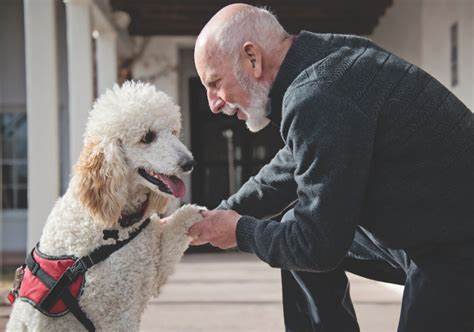Service dogs are incredible animals that provide invaluable assistance to people with disabilities. They are highly trained and can perform a variety of tasks, from alerting their handler to an oncoming seizure or providing physical support when walking. Despite the fact that service dogs have been around for centuries, there is still much to learn about them. Here are 10 things you didn’t know about service dogs.
- Service Dogs Have Been Around For Centuries The use of service dogs dates back to ancient times, when they were used by hunters and farmers to help with herding and tracking game. The first documented use of a service dog was in 1780, when a blind French man named Valentin Haüy trained his dog to guide him around Paris.
- Service Dogs Are Highly Trained Service dogs undergo extensive training before they can be certified as working animals. This includes obedience training, task training, public access training, and socialization with other animals and people. It typically takes two years for a dog to complete all the necessary training before it can be certified as a service animal.
- Service Dogs Can Help With Mental Health Issues In addition to helping people with physical disabilities, service dogs can also help those suffering from mental health issues such as post-traumatic stress disorder (PTSD), depression, anxiety, and bipolar disorder. These specially trained animals can provide emotional support and comfort during difficult times, as well as help their handlers stay focused on tasks at hand or remind them to take medication if needed.
- Not All Service Dogs Wear Vests Many people assume that all service dogs wear vests or harnesses identifying them as working animals; however this is not always the case. While some organizations require their service dogs to wear vests while in public places, others do not require this type of identification for their animals.
- There Are Different Types Of Service Dogs There are several different types of service dogs depending on the needs of the handler: mobility assistance dogs help those with physical disabilities; hearing assistance dogs alert their handlers to sounds such as doorbells or alarms; psychiatric assistance dogs assist those with mental health issues; medical alert/response dogs detect changes in blood sugar levels or other medical conditions; and emotional support/therapy animals provide comfort and companionship for those dealing with emotional distress or trauma.
- Service Dogs Are Protected By Law Service animals are protected under both federal law (the Americans With Disabilities Act) and state laws in most states across the country which allow them access into public places where pets would otherwise not be allowed such as restaurants, stores, hotels, etc., without being charged extra fees or deposits like regular pets would be required to pay in these places .
- Service Dog Owners Must Follow Certain Rules Although service dog owners have certain rights under the law they must also follow certain rules when taking their animal into public places such as keeping them under control at all times (on leash or harness), cleaning up after them if necessary ,and refraining from disruptive behavior such as barking excessively .
- Not All Animals Qualify As Service Animals Not every animal qualifies as a legitimate service animal – only certain breeds of domesticated cats and dogs qualify due to their temperament and trainability . In addition , wild animals , reptiles , rodents , ferrets , horses , pigs , monkeys , birds , rabbits , hamsters etc., do not qualify .
9 . There Is A Difference Between A Service Animal And An Emotional Support Animal (ESA) Although both types of animals provide therapeutic benefits for individuals living with disabilities there is an important difference between them – only specially trained service animals are allowed access into public places whereas emotional support animals do not have this same right under federal law .
10 . It Is Illegal To Impersonate A Person With A Disability And Use A Fake Service Dog It is illegal under federal law (the Americans With Disabilities Act) for someone who does not have a disability to pretend they do by using a fake “service” animal in order gain access into public places where pets would otherwise not be allowed . Doing so could result in fines up to $25000 per violation plus possible jail time depending on state laws .









